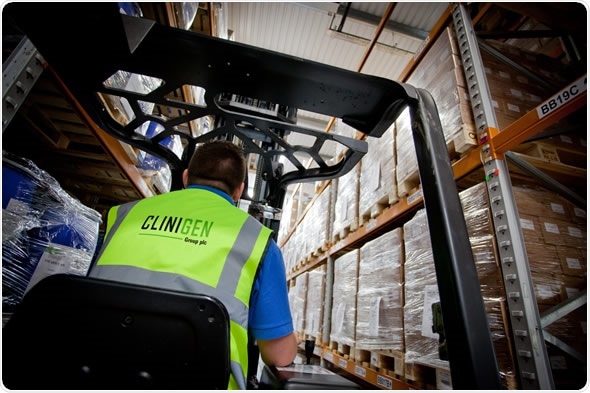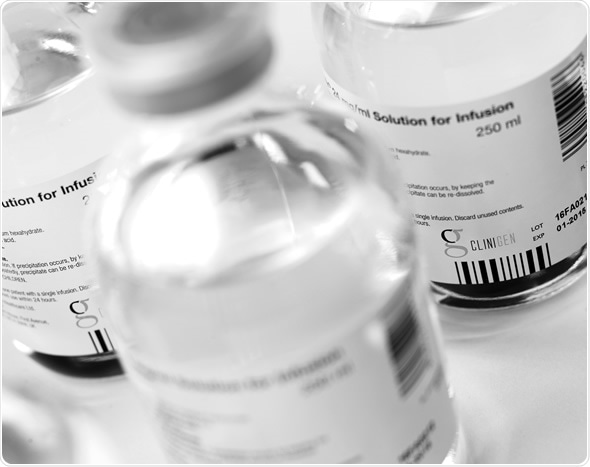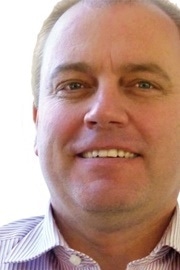Can you give a brief overview of the specialty pharmaceuticals industry?
Specialty pharmaceuticals as a category has its origins in the 1970s with complex treatments being developed for disease areas such as cancer, HIV and haemophilia and what characterises a specialty pharmaceutical product is that it will be high touch, high complexity or high cost and is often associated with the treatment of rare or orphan conditions. These products require a considerable amount of expertise, innovation and technology and can be expensive as a result.
The scale of unmet need in the treatment of rare diseases is often not fully appreciated, and to put it into context, there are over 7,000 known rare diseases in the world and 350 million people suffering from them which, as a combined total, is comparable with the global incidence of diabetes, and therefore a huge unaddressed market. It is estimated that around 20-25% of current spend in the global pharma market can today be classified as specialty pharma and this is forecast to grow to 40-50% over the next 10 years.

Clinigen SP Operations Centre
At Clinigen, our Specialty Pharmaceuticals (SP) division focuses on specific niche areas where there is a huge unmet need which for us are hospital-only treatments for haematology, oncology and rare diseases. We have no R&D and are focused on the treatment of patients rather than the development of new drugs, as such we acquire the products we own.
The division was born out of an awareness that there are many specialty medicines that have been in the marketplace for a number of years that are completely appropriate for the treatment of a particular disease, but which may have been overlooked. This can be due to the launch of a newer version of a drug, or due to neglect by some pharmaceuticals companies because of a drug’s comparatively small market size compared to other types of therapies.
We take on these older or ‘unloved products’ which are often essential for people with a rare disease who only have a single treatment option and by acquiring and revitalising products we give them the attention they deserve and a new life. Existing patients can continue their treatment without the risk of the product being withdrawn, and new patients can benefit through us pursuing new indications.

Why might pharmaceuticals not become quickly available globally? What factors contribute to the slow or lack of release of a commercial product?
The specialty pharmaceutical industry has seen increasingly stringent and more complex regulatory requirements with regards to the development, approval and launch of new products and in parallel there are also now more demands on the manufacturer and license holder to make a product available in an individual market.
For the pharmaceutical company, the logical focus is on the main markets first, where the demand for the product justifies the effort and cost involved to achieve that all-important Marketing Authorization and to bring the product to market, however that can create problems for patients in other, smaller markets.
On a global scale, the market access process can be more challenging and in less restricted jurisdictions, where there is no set procedure or standard, this can give rise to a risk that the supply chain may be vulnerable to falsified or counterfeit versions of a product. Estimates vary widely as to the extent of this problem but it is commonly accepted that the extent of counterfeit medicine in many markets is between 10 and 30% with many patients never knowing that their treatment is at best useless or in some cases dangerous.
Unfortunately, there can also be a global lack of awareness among clinical communities in niche treatment areas. A physician may be unaware of the existence or availability of a treatment that may help their patient. One of Clinigen’s goals is to ensure that the indication and the benefit of a product in one market is effectively communicated to these physician communities so that it can be adopted in other markets. This is particularly important for rare disease patients who sometimes only have one treatment option. Our unique business model means that, if there is a delay in bringing a product to market, our Idis Managed Access (MA) division can offer support in providing early or compassionate access to our own or other pharmaceutical companies’ as yet ‘unlicensed’ drugs where there is an unmet patient need.
Similarly, our Idis Global Access (GA) division is the market leader in providing an ethical, compliant route for hospital pharmacists to request drugs that may be commercially available to patients in other countries, but are unlicensed or unavailable in their own.
What are the main stages of a product’s lifecycle and how do they affect distribution to patients?
The first point at which a patient will interact with a medicine is during a clinical trial which can be multi-jurisdictional and span a number of countries and, if the trial is successful, the next stage will be a phased geographical launch with the largest markets usually the first to benefit.
At this point, Idis MA can support patients in lesser markets by providing early or compassionate access to the product on an individual basis through a physician, until the point of commercial launch and, if a market is considered too small to be commercially relevant for a launch, Idis GA can provide ongoing, compliant access to that drug from another country, often when there are no other treatment options available.
Once on the market a product will then mature as newer treatments or products are launched which may on occasion make the original product less commercially viable and therefore too expensive. For various reasons products are not always withdrawn at the end of their lifecycle but become what we classify as ‘unloved’ due to the small profit or even loss that they generate, often due to their niche market, compared to a pharma company’s other products.
The problem has become more acute in the last 10 years as the cost of maintaining product licenses in a single market has risen significantly which can lead to the Marketing Authorization being withdrawn or even discontinued which is potentially disastrous for patients if there are no suitable alternatives in place. It can also lead to a reduction in quality of life and, in extreme cases, a shortening of life.
Clinigen takes on these types of products and gives them the attention that they deserve, by finding new indications, markets and formulations for where our aim is to ensure that they remain available to patients now and in the future, even if newer, but potentially inappropriate alternatives are launched.
We also have a Clinical Trials Services (CTS) division which provides comparator drugs for clinical trials. So in this way, we can support access to vital drugs right across the full product lifecycle from clinical trial to unlicensed, to licensed supply of medicines.
What work is done to supply developing regions with world class therapies? Are poorer and developing regions excluded because they are unable to support these products?
Developing regions are often excluded from a pharma company’s launch strategy as there is no commercial driver to take a product to them and often corruption and the prevalence, and difficulty in preventing counterfeit medicines entering the supply chain can also reduce the viability of taking new medicines to these markets.
The pharmaceutical industry is generally committed to combating issues of access in developing regions; for instance, two-tier pricing has been introduced and at Clinigen, we have seen an increase in the number of pharma companies working with our leading Idis MA and GA teams to provide product direct to individual patients where there is an unmet need.
Access programs provide a secure route to get the right medicine to the right patient at the right time, even if the drug is unlicensed and not commercially available in that country.
What humanitarian efforts is Clinigen involved with? Do you do much work with charitable organisations, foundations and administrations at a regional and government level to supply the worst affected?
Our priorities are to educate healthcare professionals and the public about the dangers of counterfeit and falsified medicines, and trying to counter the effects of counterfeits.
As part of this, we became members of the European Alliance for Access to Safe Medicines (EAASM) and the European Alliance for Safe Online Pharmacies (ASOP EU) earlier this year.
We also have a long term relationship with a charity in Cameroon which enables us to understand on a personal level the needs of the people, physicians and pharmacists in accessing medicines in a less developed region.
One of Clinigen’s tenets is to endeavour to ensure global availability of products, independent of the ability to pay and we work with pharmaceutical companies to help them supply their drug products, often free of charge, to patients with no other treatment option for compassionate use, wherever they are in the world.
We also often invite patients who have benefitted from one of the niche therapies that Clinigen supplies to come into our offices to talk about their experience, so that our employees can see at first hand, the difference that their efforts make and we encourage everyone at Clinigen to approach every order and shipment as though the patient were a family member or friend. It’s important not to lose sight of why we are doing what we do.
What future efforts are Clinigen Specialty Pharmaceuticals looking to support? What areas of growth are you hoping to achieve in?
We have seen our product portfolio grow to five products in recent years. We are looking to expand this further to 10 products within the next three years, staying true to our focus of niche hospital-only drugs with a particular emphasis in oncology haematology and rare diseases.
In 2015 we acquired Link Healthcare which greatly expanded our global footprint into Africa, Australia and Asia and we will be building on this global reach further in the future to ensure that more patients are able to receive these vital specialty products whenever they have need of them and wherever they are.
Where can readers find more information?
For information on the Clinigen Group please visit our website http://www.clinigengroup.com or follow us on Twitter @Clinigen
You can find out more about Clinigen Specialty Pharmaceuticals’ capabilities and portfolio of niche, hospital only products online at https://www.clinigengroup.com/
You can also receive regular news and updates by following Clinigen SP’s dedicated LinkedIn page: https://www.linkedin.com/company/clinigen-sp-specialty-pharmaceuticals-?trk=biz-brand-tree-co-name
About David Moran
 David has over 25 years’ experience in the healthcare sector working at a senior level in both operational and commercial roles. A Chemical Engineer by training, David oversaw operations in Eastern Europe and Asia before taking on a global role spending 10 years in Spain and Portugal looking after several global brands. A majority of that time was spent with Eli Lilly and SSL before becoming CEO of a global specialty pharma business where he established their Brazilian operation. Latterly he headed his own healthcare consultancy before joining Clinigen in Jan 2015 as MD for the Specialty Pharma division.
David has over 25 years’ experience in the healthcare sector working at a senior level in both operational and commercial roles. A Chemical Engineer by training, David oversaw operations in Eastern Europe and Asia before taking on a global role spending 10 years in Spain and Portugal looking after several global brands. A majority of that time was spent with Eli Lilly and SSL before becoming CEO of a global specialty pharma business where he established their Brazilian operation. Latterly he headed his own healthcare consultancy before joining Clinigen in Jan 2015 as MD for the Specialty Pharma division.